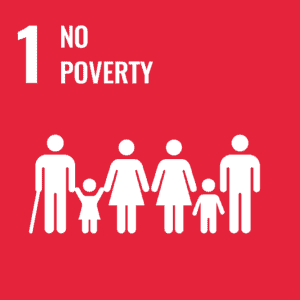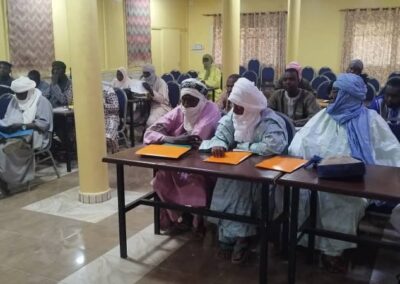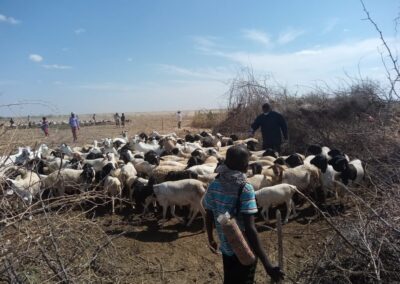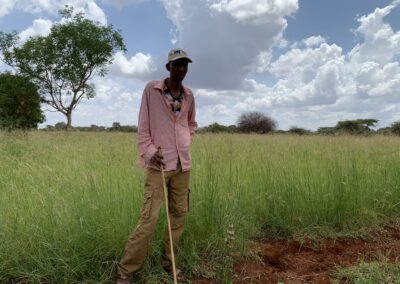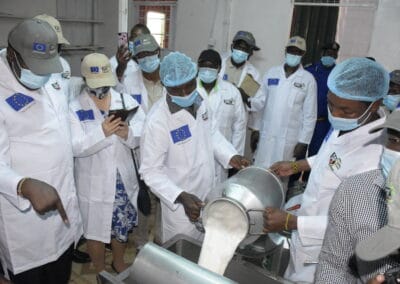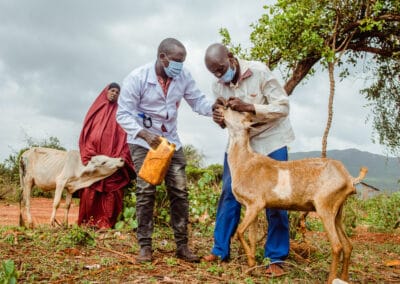Fodder from invasive plants and improvement of food and feed safety
Project Overview

Country
Kenya
Project name
INNOPLA
Duration of the project
Start: |
01.09.2023 |
End: |
31.08.2025 |
Budget
CHF 270’000
Financed by
- Atdta Foundation
- Canton Genève
- Drittes Millenium
- Else von Sick Foundation
- Canton of Aargau Swisslosfonds
- Canton of Basel-Stadt
- Canton of Basel-Landschaft
- Canton of Glarus
- Canton of Graubünden
- Ville de Pully
- Ville de Vevey
Project area
Topics
Tags
Background
In the Isiolo district, 80% of the inhabitants live from livestock farming, mainly through nomadic pastoralism. However, access to sufficient grazing land is increasingly limited due to environmental degradation and the effects of climate change (especially droughts). To counter the shortage of pasture during droughts and dry periods, the herders use various strategies. Families migrate, divide their herds, buy fodder, share their food with the cattle or slaughter or sell them. In extreme cases, they give up pastoralism altogether and may become destitute.
Goal
Community-based fodder production will contribute to increasing feed security for key livestock, thereby contributing to improving food and nutrition security, diversifying income sources and strengthening the resilience of (agro)pastoral communities in northern Kenya to drought and other shocks.
Objective 1: Promote the use of livestock feed based on ground Prosopis juliflora pods, an invasive plant species.
Objective 2: Determine the cost, nutritional value and safety of Prosopis juliflora-based feeds compared to other feeds.
Objective 3: Sustainable management of pastureland and livestock.
Approach
The project builds on the existing resources in Isiolo County to implement an economically feasible, environmentally sustainable, socio-culturally acceptable, and conflict-sensitive project. The focus of knowledge transfer lies on “learning by doing” with practical demonstrations for non-literate participants. This makes successes visible; knowledge is better anchored and a sustainable impact is achieved. The fodder developed in this way should not compete with food, it should be nutritious, easy to transport, storable and safe.
Which of the 17 UN Sustainable Development Goals does this project work towards?
